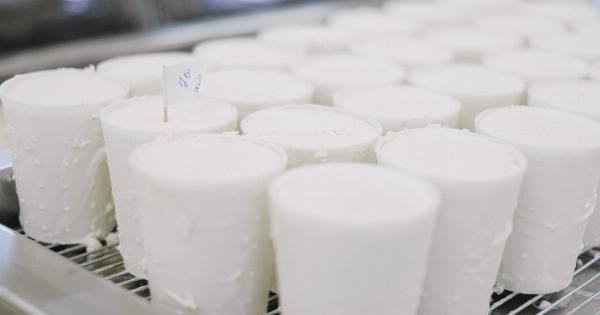Breastfeeding is an incredible experience for both mom and baby. Not only does it provide essential nutrients and antibodies for the baby’s growth and development, but it also promotes bonding and emotional well-being.
As a breastfeeding mom, it’s important to pay attention to your diet and make sure you’re consuming the right foods to support both you and your little one. In this article, we’ll discuss what to eat and what to avoid in a breastfeeding diet.
Why is a Healthy Diet Important While Breastfeeding?
During breastfeeding, your body requires extra energy and nutrients to produce breast milk. A healthy diet ensures that you have an adequate supply of nutrients to meet the demands of both you and your baby.
It plays a crucial role in maintaining your overall health, promoting milk production, and providing essential nutrients for your baby’s growth.
What to Eat While Breastfeeding
To maintain a healthy breastfeeding diet, focus on consuming nutrient-dense foods that offer a wide range of essential vitamins, minerals, and macronutrients. Here are some key food groups and nutrients to include in your diet:.
1. Protein-rich foods
Protein is a vital nutrient for breastfeeding moms. It helps in the production of breast milk and supports tissue repair and recovery. Include sources of lean protein in your diet, such as:.
- Lean meats like chicken, turkey, and beef
- Fish and seafood, rich in omega-3 fatty acids
- Legumes and beans
- Tofu and tempeh
- Dairy products like milk, yogurt, and cheese
- Eggs
2. Healthy fats
Healthy fats play a crucial role in your baby’s brain development and overall growth. Include these healthy fats in your diet:.
- Avocados
- Nuts and seeds
- Olive oil
- Coconut oil
- Fatty fish like salmon and sardines
3. Whole grains
Whole grains provide slow-release energy and help in maintaining stable blood sugar levels. They are also a good source of dietary fiber. Include these in your diet:.
- Whole wheat bread and pasta
- Brown rice
- Quinoa
- Oats
4. Colorful fruits and vegetables
Fruits and vegetables are packed with essential vitamins, minerals, and antioxidants. Aim to include a variety of colors in your diet to ensure a wide range of nutrients:.
- Leafy greens like spinach, kale, and broccoli
- Colorful berries like strawberries, blueberries, and raspberries
- Citrus fruits like oranges and lemons
- Carrots, sweet potatoes, and bell peppers
5. Hydration
Staying hydrated is crucial for breastfeeding moms. You need more fluids to maintain an adequate milk supply. Aim to drink at least 8 to 10 cups of water or other healthy fluids like herbal teas, coconut water, and fresh fruit juices.
What to Avoid While Breastfeeding
While there are no strict rules about what to avoid while breastfeeding, certain foods and substances may affect your breast milk or your baby’s health. It’s important to be mindful of the following:.
1. Caffeine
Excessive caffeine intake can make your baby irritable or interfere with their sleep patterns. Limit your caffeine consumption to 1-2 cups of coffee or tea per day.
Be cautious of hidden sources of caffeine in chocolate, energy drinks, and certain medications.
2. Alcohol
Alcohol passes into breast milk and can negatively affect your baby’s development. It’s best to avoid alcohol or limit your consumption to special occasions.
If you do choose to drink, wait at least 2-3 hours per alcoholic drink before breastfeeding.
3. Spicy and gassy foods
Some babies may be sensitive to spices or gassy foods like onions, garlic, cabbage, and broccoli. Pay attention to your baby’s reactions after consuming such foods and adjust your diet accordingly.
4. Fish high in mercury
While fish is a great source of omega-3 fatty acids, certain varieties contain high levels of mercury that can be harmful to your baby’s nervous system. Avoid high-mercury fish like shark, swordfish, king mackerel, and tilefish.
Choose low-mercury options like salmon, trout, and shrimp.
5. Allergenic foods
If you have a family history of food allergies or notice any allergic reactions in your baby, it may be wise to avoid common allergenic foods like peanuts, tree nuts, milk, eggs, soy, and wheat.
Consult with a healthcare professional if you have concerns about food allergies.
Conclusion
A healthy breastfeeding diet is essential for both you and your baby. Focus on consuming a variety of nutrient-dense foods, including protein-rich foods, healthy fats, whole grains, and colorful fruits and vegetables.
Stay hydrated and be mindful of substances like caffeine and alcohol that can affect your breast milk. Take note of your baby’s reactions to certain foods and make adjustments accordingly. Remember, a well-balanced diet not only supports your baby’s growth and development but also ensures your own well-being during this special time.





























